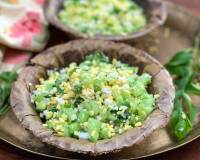A fishing village stay on one of the country’s less-visited large islands reveals a quiet Adriatic gem boasting green lakes, holm oak forests, and unspoilt beaches
The first thing that struck me about Luka was the silence.
My wife, Caroline, and I had driven our rental car from Split north along the Croatian coast to Zadar and taken an hour-and-a-half ferry ride to the island of Dugi Otok. Then we had driven the island’s length southwards, through pine forest and scrub, to arrive at this tiny fishing village, where we would spend the next week. Both of us were slightly wired from driving on foreign roads. But the strange spell of Luka put an end to that.
Nothing moved, not even cats. Before us was a sheltered bay that seemed almost surreally smooth, undisturbed by the faintest breeze. Plaster flaked from the walls of crumbling fishing cottages, their gardens bright with flowering cactuses and bougainvillaea. A row of empty beer bottles outside the shuttered general store gave the deserted quay a Mary Celeste quality. Travelling in space can sometimes seem like travelling in time, and it felt as if we had stepped back to the 1950s.
Dugi Otok (“Long Island”) is the most westerly of the Zadarian Islands off the Dalmatian coast, and one of the least-visited large islands in Croatia. Twenty-seven miles (44.5km) long and only three miles (4.8km) wide, the island’s slenderness makes it easy to explore, with a single road running from north to south. Its inhabitants – fewer than 1,500, many of whom leave in the winter months to escape the notorious Bora winds – are huddled on the eastern side, mostly in the “capital” Sali; the west falls away to steep cliffs and sand beaches. Cypress, pine, fig, olive and holm oak cover much of it, while the rest is blanketed in maquis, the scrubby evergreen underbrush of the Mediterranean. The plants comprising this dense weave are invariably spiked, hooked or barbed, as I learned the painful way when going off piste from a walking trail; the next few days were spent nursing lacerated legs. The maquis makes the island wild in a way I hadn’t encountered before, as swathes of uncultivated land are impenetrable to humans.
Continue reading...
from Travel | The Guardian https://ift.tt/2A7HPXB























































